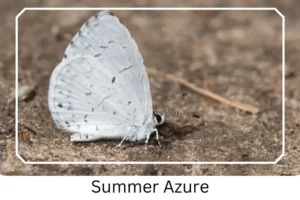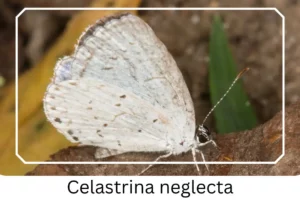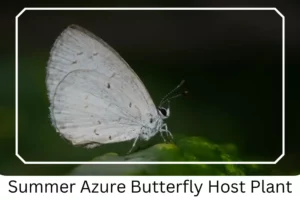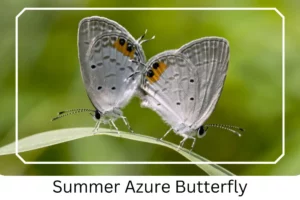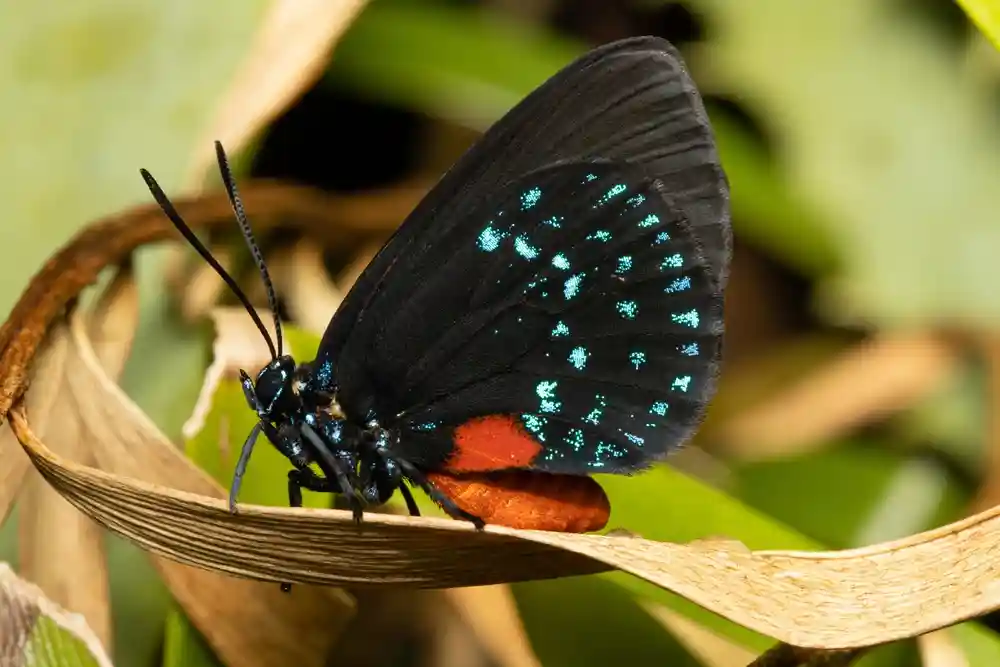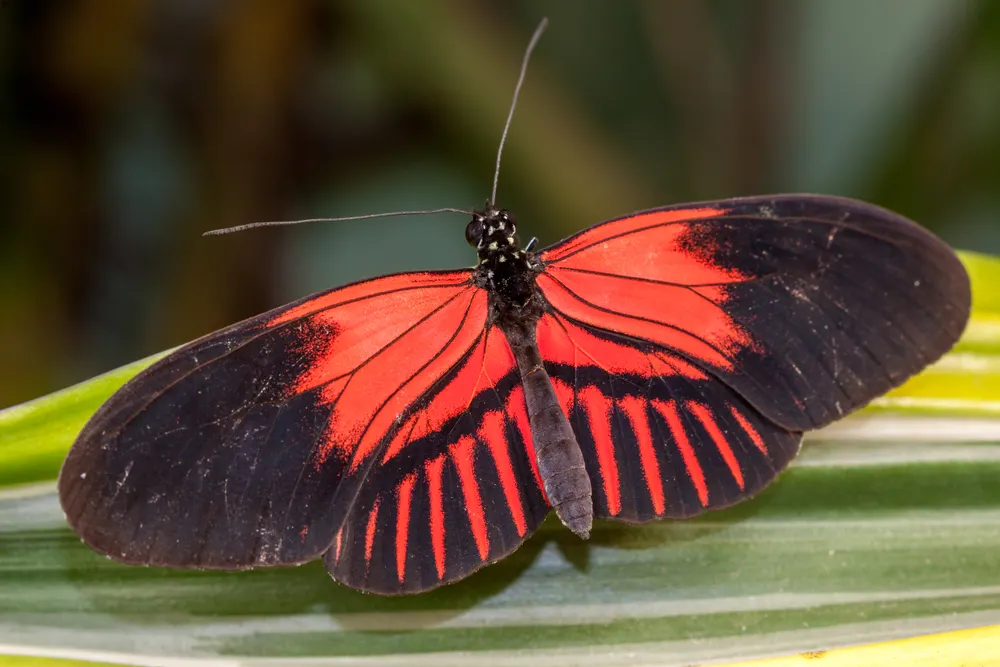Summer Azure (Celastrina neglecta)
The Summer Azure, a gem of North American wildlife, is a testament to the beauty and complexity of nature. This light blue butterfly, a member of the vast Lycaenidae family, brings life and color to gardens and woodlands across the continent. Observing these small yet vibrant creatures as they navigate through the air, flitting from flower to flower, is a delightful experience for nature enthusiasts and casual observers alike.
Scientific Classification
- Family: Lycaenidae
- Genus: Celastrina
- Scientific Name: Celastrina neglecta
Overview
Belonging to one of the smallest butterfly families on the continent, the Summer Azure captivates with its delicate appearance and fascinating life cycle. From the verdant caterpillar to the camouflaged pupa, and finally to the dazzling adult butterfly, each stage of its life offers a unique glimpse into the adaptability and beauty of these insects. Their presence across a wide range of habitats highlights their versatility and the important role they play in their ecosystems.
Description and Identification
Caterpillar
The Summer Azure caterpillar is a sight to behold, with its light green or occasionally whitish-green body adorned with a distinctive mark resembling a backbone. This mark features an intricate pattern of light maroon, dark green, and yellow stretching from its head to the tail. Feeding primarily on the leaves and flowers of host plants, this larva plays a crucial role in the early stages of the Summer Azure’s life cycle.
Pupa
Transforming into a pupa, the Summer Azure enters a stage of remarkable camouflage. Its light brown chrysalis, speckled with dark spots, mimics the appearance of a dead leaf, blending seamlessly into its surroundings. This clever adaptation protects the butterfly during its vulnerable period of metamorphosis, showcasing the marvels of natural selection.
Adult Butterfly
Sexual Dimorphism: The adult stage of the Summer Azure is where sexual dimorphism becomes evident. Males boast pale blue wings dusted with white scales, while females may present white wings with blue bases or possess forewings with a distinct dark grey band, illustrating the diversity within the species.
Color and Appearance: With wings spread, the delicate hues and patterns of the Summer Azure come to life. The underside of the wings features a chalky white to dull grey palette, adorned with tiny grey spots and a subtle line, adding to its enchanting appearance.
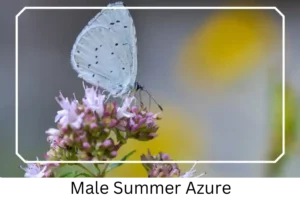
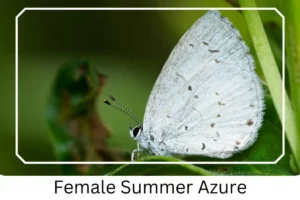 Average Wingspan: The wingspan of the Summer Azure ranges from 23 to 29 mm (0.91 to 1.14 inches), a testament to its petite stature among North American butterflies.
Average Wingspan: The wingspan of the Summer Azure ranges from 23 to 29 mm (0.91 to 1.14 inches), a testament to its petite stature among North American butterflies.
Flight Pattern: Characterized by a fast and erratic flight pattern, these butterflies dart up and down, creating a mesmerizing display of agility and grace.
Eggs
The beginning of life for a Summer Azure is marked by its uniquely colored eggs. Laid singly on young flower buds, these light whitish turquoise eggs hint at the vibrant life that is to emerge.
Quick Facts | |
| Distribution | Found across most regions of the eastern and central United States and southern Canada. |
| Habitat | Thrives in a variety of settings including gardens, stream valleys, woodlands, marshes, powerline right of ways, and fields. |
| Lifespan of Adults | Lives for a few weeks. |
| Host Plants | Prefers Racemose dogwood, New Jersey Tea, and other similar plants. |
| Adult Diet | Feeds on flower petals, nectar, and buds. |
How to Identify Summer Azure Butterfly?
Identifying the Summer Azure butterfly involves looking for specific characteristics unique to this species. Observers should note the distinctive light blue color of the males and the varying patterns of the females, with some displaying white wings and others featuring dark grey bands. The size is another indicator, as they are among the smallest butterflies in their habitat, with a wingspan not exceeding 1.14 inches. Their flight pattern is erratic and fast, often seen fluttering close to the ground or around flowers. The eggs of the Summer Azure, a light whitish turquoise, are usually found on young flower buds, serving as a precursor to the butterfly’s life stages.
Did You Know?
- The caterpillars of the Summer Azure engage in a symbiotic relationship with ants, exchanging sweet secretions for protection against predators.
- Despite their small size, Summer Azures are adept at navigating through various habitats, demonstrating remarkable adaptability and resilience.
- Their coloration not only serves as camouflage against predators but also plays a crucial role in attracting mates and ensuring the continuation of the species.
Conclusion
The Summer Azure butterfly, with its striking beauty and intricate life stages, is a fascinating subject for study and admiration. Its presence across North America enriches the biodiversity of its habitats, offering a glimpse into the complexity of ecological relationships. By understanding and appreciating these delicate creatures, we can foster a greater connection to the natural world and promote efforts to preserve the environments that sustain them.

